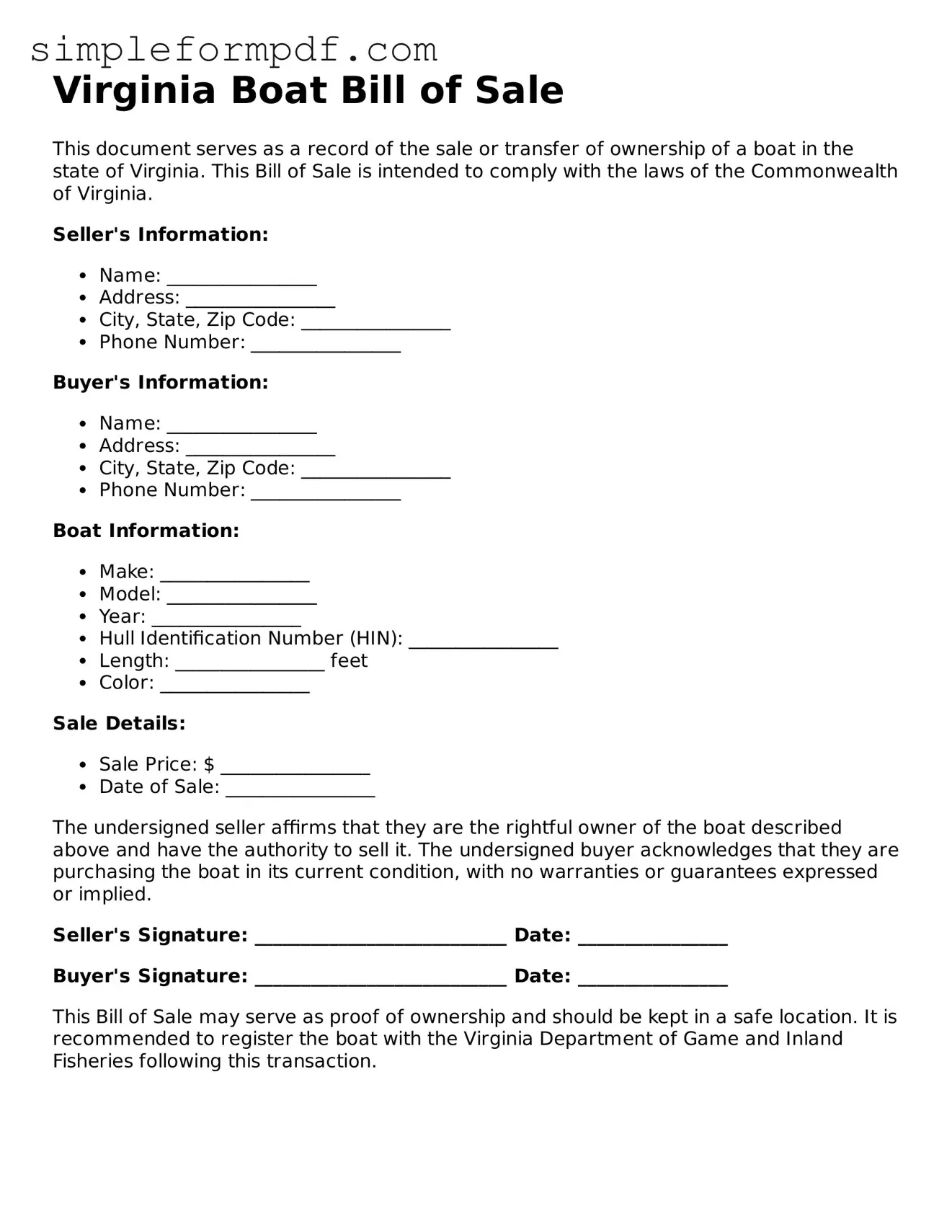Free Boat Bill of Sale Form for the State of Virginia
The Virginia Boat Bill of Sale form is a legal document that serves as proof of the sale and transfer of ownership of a boat between the seller and the buyer. This form is essential for ensuring that both parties have a clear record of the transaction, which can help avoid disputes in the future. If you're ready to complete your boat sale, fill out the form by clicking the button below.
Launch Editor

Free Boat Bill of Sale Form for the State of Virginia
Launch Editor
Need instant form completion?
Finish Boat Bill of Sale online in just a few minutes.
Launch Editor
or
Download PDF
